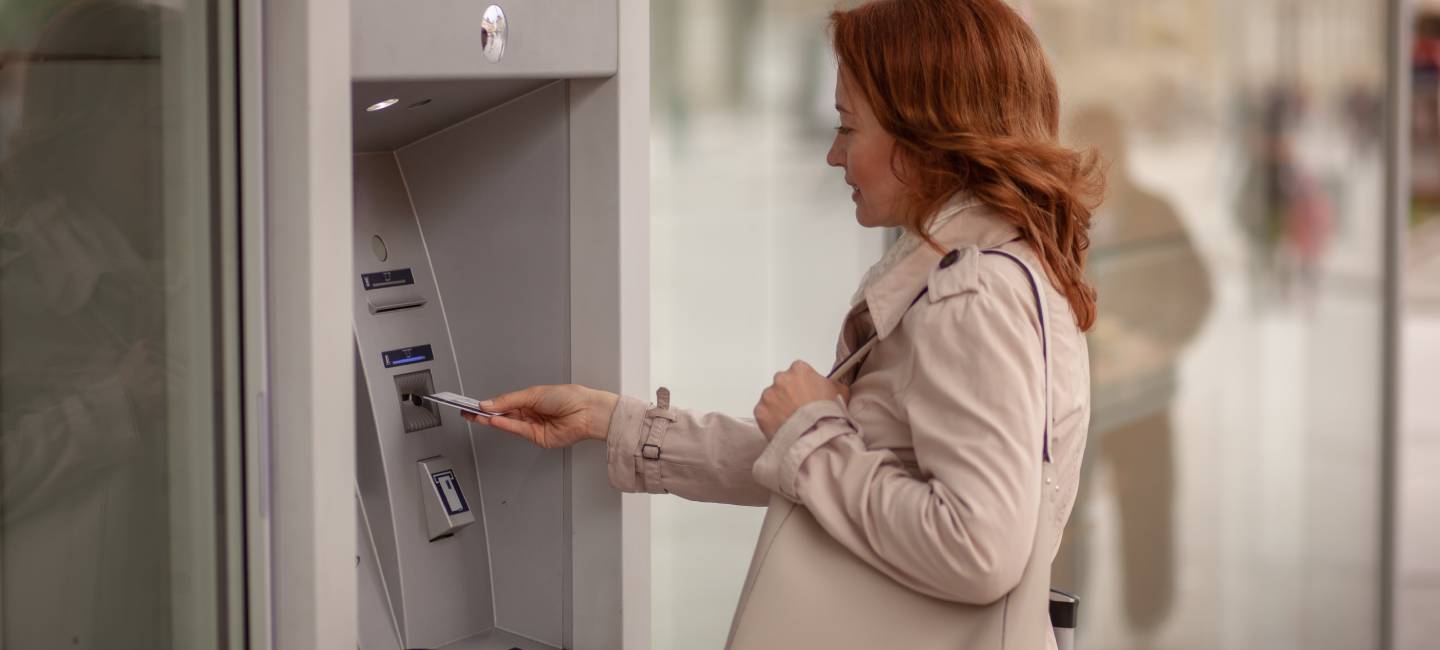If you need to complete a self-assessment tax return, you will need to submit it by 31st January or risk being stung with a fine.
So you’ve decided that you need to fill out a HMRC self-assessment form, thanks to having income from a range of sources or still being self-employed.
(If you’re still not sure about whether self-assessment applies to you, you can read our explainer below or check online yourself).
The quickest and simplest way to do this is online. The deadline to file in this manner is the end of January – which, at the time of writing, covers income from the tax year April 6, 2022 to April 5, 2023.
The deadline for submitting a paper tax return passed on 31st October 2023, but you still have until midnight on 31st January to get everything in digitally.
Be aware that scammers take advantage of people planning to file their tax paperwork, so watch out for phishing texts, emails, phone calls and letters – if something is surprising or doesn’t seem right, search online for the phone number of the body asking for payment (likely HMRC) and check the request is real.
Who needs to complete a tax return?
If you work for yourself (known as a sole trader) or have income from a variety of sources (such as a rental property or investment portfolio), you will typically need to complete a self-assessment tax return to ensure you're paying the right amount of tax on your income.
You’ll also need to complete a return if your only taxable income through PAYE is currently above £100,000. After this point, you’ll start losing the personal allowance (currently set at £12,570), which is the amount you can earn before paying any tax.
(However, the self-assessment limit for those only paid through PAYE is rising to £150,000 for the 2023-2024 tax year, before disappearing in 2024).
When filling in the form, remember to include everything you’ve earned over the tax year. This includes income from employment or self-employment as well as income from property, and interest and gains from your savings and investments.
If you’ve got a side-hustle on the go, from renting out your driveway to selling on eBay, bear in mind you can earn up to £1,000 from it each year before you need to pay income tax on those earnings.
Rachel Harris, director at Strive X Accounting, acknowledges that not everyone enjoys doing their tax return, but the earlier you tackle it, the less stressful it will be. You can even give yourself a little boost, by filing your next return soon after the end of the financial year in April, getting that satisfied feeling of knowing you’re well ahead of millions of other self-assessors.
“Not only will you know your tax bill months before it’s due but lots of your expenses and income will be fresh in your memory, making it easier to maximise on [any] tax-deductible expenses,” Harris adds.
How to register for online self-assessment.
It can take weeks to register for self-assessment online, so it’s best you get started as far in advance of the January deadline as possible, as you could face penalties on top of any tax due if you are late.
However, if you need to fill out a tax return and are now worried you’ll get fined, it’s best to just start as soon as possible to minimise any possible penalties.
To register, go to this page on the Government website: Register for and file your Self Assessment tax return.
Here you will be asked the reason you need to file an online self-assessment form – for example if you are a sole trader, need to pay capital gains tax or receive income from dividends as we discussed above.
You’ll also have to apply for a Government Gateway user ID, if you don’t already have one. You can do this on the HMRC homepage.
Finding your Unique Taxpayer Reference (UTR) number.
If you have filled in a self-assessment form in the past, you should already have a Unique Taxpayer Reference (UTR) number: this will make the process quicker. You can recover or reset your HMRC account if you can't remember your details.
If you don't already have a UTR, you will have to wait for one to be issued by post. It can take up to 10 working days to come through if you're in the UK, or 21 days if you are abroad.
How to fill in your tax return for self-assessment.
Once you have your login details, you can start to fill in your tax return online.
It will be quicker if you have the relevant following information to hand – you'll need it eventually so it’s worth pulling it together first, even if it does take a bit of time:
- Your P60 or P45 showing income from any employment
- P11D form showing workplace benefits
- Income from property rental
- Pension payments or pension contributions
- Capital gains from selling investments
- Dividends from shareholdings
- Bank account interest
- Charity donations that could be eligible for Gift Aid
It’s easy enough to fill in your own tax return, and HMRC has lots of tips and pointers along the way. You don’t necessarily need an accountant, although there’s nothing to stop you using one if you’ve got a complicated income, or you’re finding the process difficult.
You won’t need to send any original documentation off when you fill in your form online, but it’s still a good idea to keep hold of it, just in case there are any further questions from HMRC.
If you’re feeling like there’s too much to do in one go, then don’t worry: the form can be filled in over the course of a few days, and you can save your progress as you go so you don’t have to do it all at once.
Then at the end of your return, you'll be shown a calculation of how much tax you owe, or whether you are owed a tax rebate.
Before you click ‘submit’, it’s worth going through everything one more time to check you have included all the required information and that you haven’t made any mistakes.
Once you’ve submitted your tax return, you’ll get a confirmation email and reference number that you’ll want to keep hold of. Soon after you’ll get an email confirming that your self-assessment form has been submitted.
Paying your tax bill.
People who pay their income tax through self-assessment make two payments a year, with deadlines of January 31st and July 31st. Each is half the tax bill for the previous year.
The system can be a bit confusing, but when you file your tax return HMRC will tell you exactly how much you need to pay on each date.
You can pay your tax bill through online banking, direct debit, a cheque in the post, or an online or telephone bank transfer. However, you can no longer pay at the Post Office if you’ve perhaps done that in the past – the government website has all the details you need for ways to pay any tax you owe.
You have until 31 January to pay your tax bill, but it’s worth doing it straight away to avoid the risk of forgetting.
Why does self-assessment exist?
The self-assessment system exists to ensure that people with complicated income streams or higher earners pay the right amount of income tax.
Most people have their tax deducted ‘at source’. This means that their tax is automatically deducted from their salary or pension payments.
However, if you have significant income from other sources, such as self-employment, rent on buy-to-let property, or gains from the sale of assets such as shares or a second home, self-assessment is the only way to pay any tax owed.
Self-assessment deadlines.
If you’re new to the world of self-assessment – or you’re constantly forgetting what’s needed and when, there are some key deadlines it’s worth noting down.
Set yourself some reminders for the ones that are most relevant to you and you can easily avoid any frustrating fines for being late.
January 31: Deadline for filing self-assessment return online.
You have until midnight on this date to submit your return using HMRC’s online service.
January 31: Deadline for paying tax due for previous financial year.
Whether you file your return online or by post, your tax bill must be paid by midnight on January 31.
January 31: First payment on account for current financial year.
If you pay your income tax through self-assessment, the first payment on account will be required here, before paying the second amount later in July.
April 5: Financial year ends.
The financial year runs from April 6 to April 5 the following year. Your tax return will cover your income between these dates, and from this point you can begin filing your return.
July 31: Second payment on account for financial year just ended
This is when the other half of the expected tax bill for the most recent financial year is due. If you expect to pay less tax for this period – for example if your income has fallen, or you have made no capital gains – tell HMRC and your payment on account can be reduced.
October 5: Deadline for registering for self-assessment.
If you are not already registered for self-assessment and need to file a return, you should inform HMRC before this date.
If you don’t register by October 5 and you fail to pay any tax owing in time, you could face extra penalties. If you have missed this date in the financial year, get registered now or speak to an accountant who can help you get the process completed as soon as possible.
October 31: Deadline for filing paper self-assessment forms.
If you are filing your return by post, the form needs to have arrived at your tax office by midnight on this date.
Paper returns are being phased out under the government’s Making Tax Digital scheme, so it’s worth getting your head around paying online sooner rather than later to help make life that little bit simpler.
What happens if you miss the self-assessment deadline?
If you file your self-assessment after January 31 you'll be hit by an automatic one-off fixed penalty of £100.
This is if you file within three months after the deadline. The longer you delay, the more expensive it gets, with daily penalties and the potential for additional tax. Use the HMRC calculator to estimate your penalty.
You’ll also have to pay this penalty if you file your tax return on time but miss the deadline for paying your bill.
Penalties may be waived if you can provide a “reasonable” excuse. But, be warned, there are very few excuses that HMRC will accept for late filing.
These include:
- The recent death of a partner
- A serious illness
- An unexpected stay in hospital
- A fire or flood that stopped you from completing your tax return.
Harris, from Strive X accounting, warns that you cannot claim that the online system too difficult to use, or that you didn’t press ‘submit’ at the final stage.
“You must send your return or payment as soon as possible after your reasonable excuse is resolved,” she adds.
As a self-assessment taxpayer, it is worth doing all you can to avoid filing late. Don’t leave everything until the last minute. Act now and ensure you submit your online tax return on time.
- If you have any problems or queries, you can call HMRC’s online services helpdesk on 0300 200 3600.
Leaving the self-assessment system.
If you have filled out a return in the past but now no longer need to – for example, if you have left self-employment – you can get in touch with HMRC and ask for your return to be withdrawn.
Key points:
- You’ll currently need to complete a tax return if you’re self-employed, earn more than £100,000 a year or have income from multiple sources (such as property and investments)
- Don’t leave it too late - you run the risk of rushing your tax return, making common self-assessment mistakes and could even incur a penalty fee if you miss the January 31 deadline
- It will be easier if you gather all the paperwork you’ll need before you start, but you can work through it at your own pace.
Money news

There’s billions sitting unclaimed in shares and dividends – find out if any belongs to you.

From their first savings account to their first home, find out how your gifts can make the biggest impact for your grandchildren
.jpg?la=en&h=354&w=616&hash=653168623B92F3457D40ACA115D37B3E)

.jpg?la=en&h=354&w=616&hash=458B0288E9852F4B63A433E2FDD375E7)



Saga Money
We're here to help you make the most with your money. With a rage of financial services designed with over 50s in mind.
- Savings, ISAs and Investments
- Mortgages
- Equity Release
- Legal Services



